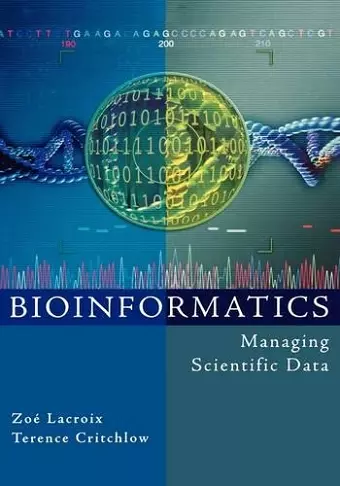Bioinformatics
Managing Scientific Data
Terence Critchlow editor Zoé Lacroix editor
Format:Hardback
Publisher:Elsevier Science & Technology
Published:8th Sep '03
Should be back in stock very soon

Equips computer scientists and biologist investigators to tackle large scale data challenges with current approaches and a variety of systems.
Life science data integration and interoperability is one of the most challenging problems in bioinformatics. This title provides an overview of the state-of-the-art in data integration and interoperability in genomics, highlighting a variety of systems and giving insight into the strengths and weaknesses of their different approaches.Life science data integration and interoperability is one of the most challenging problems facing bioinformatics today. In the current age of the life sciences, investigators have to interpret many types of information from a variety of sources: lab instruments, public databases, gene expression profiles, raw sequence traces, single nucleotide polymorphisms, chemical screening data, proteomic data, putative metabolic pathway models, and many others. Unfortunately, scientists are not currently able to easily identify and access this information because of the variety of semantics, interfaces, and data formats used by the underlying data sources. Bioinformatics: Managing Scientific Data tackles this challenge head-on by discussing the current approaches and variety of systems available to help bioinformaticians with this increasingly complex issue. The heart of the book lies in the collaboration efforts of eight distinct bioinformatics teams that describe their own unique approaches to data integration and interoperability. Each system receives its own chapter where the lead contributors provide precious insight into the specific problems being addressed by the system, why the particular architecture was chosen, and details on the system's strengths and weaknesses. In closing, the editors provide important criteria for evaluating these systems that bioinformatics professionals will find valuable.
"An exciting compilation that addresses the key issues in biological data management." --Sylvia Spengler, Lawrence Berkeley National Laboratory
ISBN: 9781558608290
Dimensions: unknown
Weight: 960g
464 pages